Influential people selling fake cure for Polycystic Ovary Syndrome

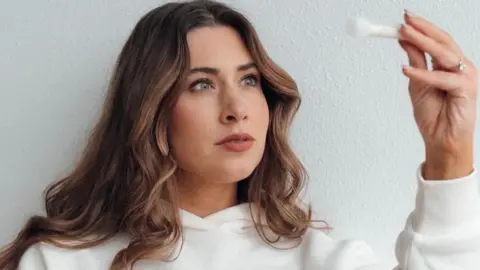 Courtney Simang
Courtney SimangSophie had been experiencing painful periods, weight gain, depression and fatigue for 12 years.
She was diagnosed with polycystic ovary syndrome (PCOS), a hormonal condition that affects around one in 10 women, but she struggled to get medical help.
She realized her only option was to take her health into her own hands, and that was the moment Courtney Simang came across her recommended page on Instagram.
Courtney promised to treat the “root cause” of PCOS, although researchers have not yet identified a cause. He offered clients lab tests, a “health protocol” – a diet and supplement plan – and coaching for $3,600 (£2,800). Sophie signed up for the supplement through Courtney’s affiliate link, paying hundreds of dollars more.
Gynecologist and women’s health educator Dr. Jane Gunter said Courtney was not qualified to order the tests she was selling and that they had limited clinical use.
Sophie’s symptoms had not improved after almost a year, so she abandoned Courtney’s treatment.
“I left the program with a poor relationship toward my body and food,[feeling]that I didn’t have the ability to improve my PCOS,” she said.
Kourtney did not respond to requests for comment.
Medically unqualified influencers – who have over a million followers – are taking advantage of the lack of easy medical solutions for PCOS by posing as experts and selling fake cures.
Some people call themselves nutritionists or “hormone coaches”, but these validations can be done online in a matter of weeks.
The BBC World Service tracked the most-viewed videos with the “PCOS” hashtag on TikTok and Instagram during the month of September and found that half of them spread misinformation.
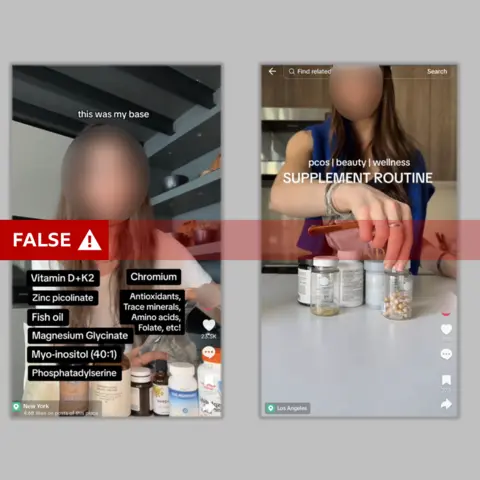
According to the World Health Organization (WHO), 70% of women with PCOS worldwide have not been diagnosed, and even when diagnosed, women struggle to find treatments that work.
“Whenever there is a medical gap, predators take advantage,” Dr. Gunter said.
Key false or misleading claims shared by these influencers include:
- PCOS can be cured with dietary supplements
- PCOS can be cured with a diet like low carbohydrate high fat keto diet
- Birth control pills cause PCOS or make symptoms worse
- Mainstream drugs can suppress PCOS, but don’t address its “root cause”
There is no evidence that a highly restricted calorie diet has any positive effects, and the keto diet may make symptoms worse. Birth control pills do not cause PCOS and actually help many women, although they do not work for everyone. There is no known root cause for PCOS and there is no cure.
A TikTok spokesperson said the company does not allow misleading or inaccurate content on its platform that could cause significant harm.
A spokesperson for Meta said that user content on women’s health is allowed on the platform “without any restrictions”. The company said it consulted with third parties to debunk health misinformation.
What is PCOS?
- According to WHO, PCOS is a long-term hormonal condition that affects an estimated 8-13% of women.
- The NHS says symptoms include painful irregular periods, excessive hair growth and weight gain
- The NHS says PCOS is one of the most common causes of infertility, but most women can get pregnant with treatment

The BBC spoke to 14 women from Kenya, Nigeria, Brazil, the UK, the US and Australia who have tried various products promoted by influencers.
Almost everyone mentioned Talyn Hackettarian, who has over two million followers on TikTok and Instagram.
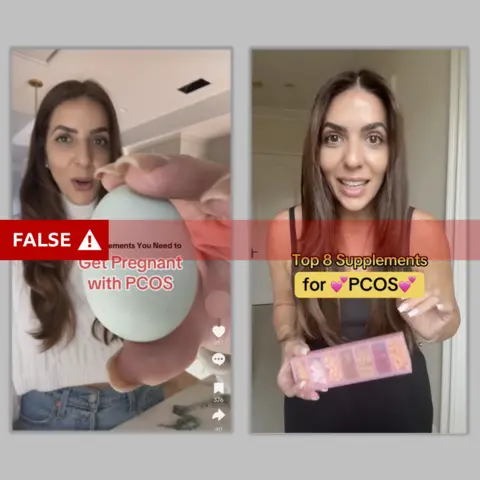
A registered dietitian, Tallin sells supplements for $219 (£172) and access to her weight loss app for $29 (£23) a month. She cautions people against pharmaceuticals like the birth control pill, or the diabetes drug, metformin, both of which have been found to be helpful for many women with PCOS.
Instead she encourages her viewers to heal “naturally” with her supplements. She puts a lot of emphasis on weight and what she calls the “PCOS belly,” referring to fat around the belly.
Amy, from Northern Ireland, decided to follow some of Talyn’s advice after struggling to get help through her GP.
“PCOS belly was exactly where my insecurities were,” she told me.
Tallin recommends cutting out gluten and dairy and following a keto diet. But while a healthy diet may help PCOS symptoms, there’s no evidence that gluten and dairy have a negative effect.
In Amy’s case, the keto diet made her sick regularly, and she found it difficult to give up gluten and dairy products.
“It makes you feel like you failed,” she said. “Looking back, I wasn’t that heavy then, but these people would make me feel bad, and make you want to diet more, or buy more supplements.”
Dr Gunter told the BBC that such diet plans “can lead to full-blown eating disorders”.
Talyn did not respond to the BBC’s request for comment.
Amy said her GP had offered her hormonal birth control to manage her symptoms, but she had no other ideas for treatment. She was told to come back if she wanted to get pregnant in the future.
Dr. Gunter said this is a vulnerable patient group who may struggle with feelings of helplessness without access to treatment. He said misinformation often causes patients to delay seeking medical help and can lead to the development of other conditions such as type 2 diabetes.
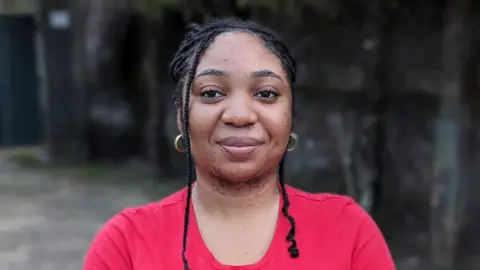
In Nigeria, Madeline, a medical student, is trying to deal with some of the shame associated with PCOS. After trying diet and supplements to no avail, she now encourages other women to consult their doctors and adopt evidence-based treatments.
“When you are diagnosed with PCOS it comes with a lot of stigma. People think you’re lazy, you don’t take care of yourself, that we can’t get pregnant,” she said. “So no one wants to date you, no one wants to marry you.”
But now she’s embracing some of her PCOS features. “Accepting my PCOS, my hair, my weight has been a difficult journey,” she said. “These things make me different.”
Sasha Otte, of the US-based charity PCOS Challenge, said medical treatment usually enables people with the condition to get pregnant.
“Women with PCOS have the same number of children as women without PCOS,” she said. “You may just need a little help to get there.”
Dr. Gunter said women who aren’t getting help from a general practitioner should ask to see a specialist.
“Some women require a trusted endocrinologist or a trusted obstetrician and gynecologist for the next level of management.”
Sophie and her doctors are still trying potential treatments and finding one that works for her.
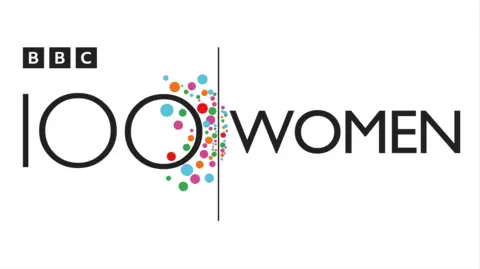
bbc 100 women Every year I name 100 inspiring and influential women from around the world. Follow BBC 100 Women Instagram And FacebookJoin the conversation using #BBC100Women.






